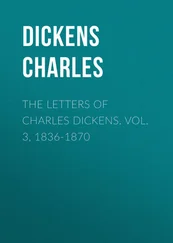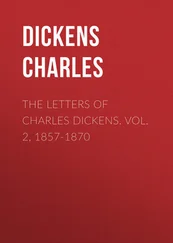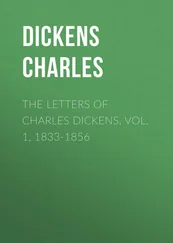Генри Джеймс - The Letters of Henry James. Vol. II
Здесь есть возможность читать онлайн «Генри Джеймс - The Letters of Henry James. Vol. II» — ознакомительный отрывок электронной книги совершенно бесплатно, а после прочтения отрывка купить полную версию. В некоторых случаях можно слушать аудио, скачать через торрент в формате fb2 и присутствует краткое содержание. Жанр: Биографии и Мемуары, foreign_antique, foreign_prose, на английском языке. Описание произведения, (предисловие) а так же отзывы посетителей доступны на портале библиотеки ЛибКат.
- Название:The Letters of Henry James. Vol. II
- Автор:
- Жанр:
- Год:неизвестен
- ISBN:нет данных
- Рейтинг книги:4 / 5. Голосов: 1
-
Избранное:Добавить в избранное
- Отзывы:
-
Ваша оценка:
- 80
- 1
- 2
- 3
- 4
- 5
The Letters of Henry James. Vol. II: краткое содержание, описание и аннотация
Предлагаем к чтению аннотацию, описание, краткое содержание или предисловие (зависит от того, что написал сам автор книги «The Letters of Henry James. Vol. II»). Если вы не нашли необходимую информацию о книге — напишите в комментариях, мы постараемся отыскать её.
The Letters of Henry James. Vol. II — читать онлайн ознакомительный отрывок
Ниже представлен текст книги, разбитый по страницам. Система сохранения места последней прочитанной страницы, позволяет с удобством читать онлайн бесплатно книгу «The Letters of Henry James. Vol. II», без необходимости каждый раз заново искать на чём Вы остановились. Поставьте закладку, и сможете в любой момент перейти на страницу, на которой закончили чтение.
Интервал:
Закладка:
To Miss Gwenllian Palgrave
My dear Gwenllian Palgrave,
It is quite horrid for me to have to tell you (and after a little delay caused by a glut of correspondence, at once, and a pressure of other occupations) that your gentle appeal, on your friend's behalf, in the matter of the "favourite quotation," finds me utterly helpless and embarrassed. The perverse collectress proposes, I fear, to collect the impossible! I haven't a favourite quotation—absolutely not: any more than I have a favourite day in the year, a favourite letter in the alphabet or a favourite wave in the sea! And the collectress, in general, has ever found me dark and dumb and odious, and I am too aged and obstinate and brutal to change! Such is the sorry tale I have to ask you all patiently to hear. I wish you were, or had been, coming over to see me from Canterbury—instead of labouring in that barren vineyard of other friendship. Do come without fail the next time you are there; and believe me your—and your sister's—very faithful even if very flowerless and leafless well-wisher from long ago,
HENRY JAMES.To William James
Dearest William,
I seem to have followed your summer rather well and intimately and rejoicingly, thanks to Bill's impartings up to the time he left me, and to the beautiful direct and copious news aforesaid from yourself and from Alice, and I make out that I may deem things well with you when I see you so mobile and mobilizable (so emancipated and unchained for being so,) as well as so fecund and so still overflowing. Your annual go at Keene Valley (which I'm never to have so much as beheld) and the nature of your references to it—as this one to-night—fill me with pangs and yearnings—I mean the bitterness, almost, of envy: there is so little of the Keene Valley side of things in my life. But I went up to Scotland a month ago, for five days at John Cadwalader's (of N.Y.) vast "shooting" in Forfarshire (let to him out of Lord Dalhousie's real principality,) and there, in absolutely exquisite weather, had a brief but deep draught of the glory of moor and mountain, as that air, and ten-mile trudges through the heather and by the brae-side (to lunch with the shooters) delightfully give it. It was an exquisite experience. But those things are over, and I am "settled in" here, D.V., for a good quiet time of urgent work (during the season here that on the whole I love best, for it makes for concentration—and il n'y a que ça—for me !) which will float me, I trust, till the end of February; when I shall simply go up to London till the mid-May. No more "abroad" for me within any calculable time, heaven grant! Why the devil I didn't write to you after reading your Pragmatism —how I kept from it—I can't now explain save by the very fact of the spell itself (of interest and enthralment) that the book cast upon me; I simply sank down, under it, into such depths of submission and assimilation that any reaction, very nearly, even that of acknowledgment, would have had almost the taint of dissent or escape. Then I was lost in the wonder of the extent to which all my life I have (like M. Jourdain) unconsciously pragmatised. You are immensely and universally right , and I have been absorbing a number more of your followings-up of the matter in the American (Journal of Psychology?) which your devouring devotee Manton Marble … plied, and always on invitation does ply, me with. I feel the reading of the book, at all events to have been really the event of my summer. In which connection (that of "books"), I am infinitely touched by your speaking of having read parts of my American Scene (of which I hope Bill has safely delivered you the copy of the English edition) to Mrs. Bryce—paying them the tribute of that test of their value. Indeed the tribute of your calling the whole thing "köstlich stuff" and saying it will remain to be read so and really gauged, gives me more pleasure than I can say, and quickens my regret and pain at the way the fates have been all against (all finally and definitely now) my having been able to carry out my plan and do a second instalment, embodying more and complementary impressions. Of course I had a plan—and the second vol. would have attacked the subject (and my general mass of impression) at various other angles, thrown off various other pictures, in short contributed much more. But the thing was not to be....
But I am writing on far into the dead unhappy night, while the rain is on the roof—and the wind in the chimneys. Oh your windless (gateless) Cambridge! Choyez-le ! Tell Alice that all this is "for her too," but she shall also soon hear further from yours and hers all and always,
HENRY.To W. E. Norris
My dear Norris,
I want you to find this, as by ancient and inviolate custom, or at least intention, on your table on Christmas a.m.; but am convinced that, whenever I post it, it will reach you either before or after, and not with true dramatic effect. It will take you in any case, however, the assurance of my affectionate fidelity—little as anything else for the past year, or I fear a longer time, may have contributed to your perception of that remembrance. The years and the months go, and somehow make our meetings ingeniously rarer and our intervals and silences more monstrous. It is the effect, alas, of our being as it were antipodal Provincials—for even if one of us were a Capitalist the problem (of occasional common days in London) would be by so much simplified. I am in London less, on the whole (than during my first years in this place;) and as you appear now to be there never, I flap my wings and crane my neck in the void. Last spring, I confess, I committed an act of comprehensive disloyalty; I went abroad at the winter's end and remained till the first days of July (the first half of the time in Paris, roughly speaking—and on a long and very interesting, extraordinarily interesting, motor-tour in France; the second in Rome and Venice, as to take leave of them forever.) This took London almost utterly out of my year, and I think I heard from Gosse, who happily for him misses you so much less than I do, (I mean enjoys you so much more—but no, that isn't right either!) that you had in May or June shone in the eye of London. I am not this year, however, I thank my stars, to repeat the weird exploit of a "long continental absence"—such things have quite ceased to be in my real mœurs —and I shall therefore plan a campaign in town (for May and June) that will have for its leading feature to encounter you somewhere and somehow. Till then—that is to a later date than usual—I expect to bide quietly here, where a continuity of occupation—strange to say—causes the days and the months to melt in my grasp, and where, in spite of rather an appalling invasion of outsiders and idlers (a spreading colony and a looming menace,) the conditions of life declare themselves as emphatically my rustic "fit" as I ten years ago made them out to be. I have lived into my little house and garden so thoroughly that they have become a kind of domiciliary skin, that can't be peeled off without pain—and in fact to go away at all is to have, rather, the sense of being flayed. Nevertheless I was glad, last spring, to have been tricked, rather, into a violent change of manners and practices—violent partly because my ten weeks in Paris were, for me, on a basis most unprecedented: I paid a visit of that monstrous length to friends (I had never done so in my life before,) and in a beautiful old house in the heart of the Rive Gauche, amid old private hotels and hidden gardens (Rue de Varenne), tasted socially and associatively, so to speak, of a new Paris altogether and got a bellyful of fresh and nutritive impressions. Yet I have just declined a repetition of it inexorably, and it's more and more vivid to me that I have as much as I can tackle to lead my own life—I can't ever again attempt, for more than the fleeting hour, to lead other people's. (I have indeed, I should add, suffered infiltration of the poison of the motor—contemplatively and touringly used: that, truly, is a huge extension of life, of experience and consciousness. But I thank my stars that I'm too poor to have one.) I'm afraid I've no other adventure to regale you with. I am engaged, none the less, in a perpetual adventure, the most thrilling and in every way the greatest of my life, and which consists of having more than four years entered into a state of health so altogether better than I had ever known that my whole consciousness is transformed by the intense alleviation of it, and I lose much time in pinching myself to see if this be not, really, "none of I." That fact, however, is much more interesting to myself than to other people—partly because no one but myself was ever aware of the unhappy nature of the physical consciousness from which I have been redeemed. It may give a glimmering sense of the degree of the redemption, however, that I should, in the first place, be willing to fly in the face of the jealous gods by so blatant a proclamation of it, and in the second, find the value of it still outweigh the formidable, the heaped-up and pressed together burden of my years.
Читать дальшеИнтервал:
Закладка:
Похожие книги на «The Letters of Henry James. Vol. II»
Представляем Вашему вниманию похожие книги на «The Letters of Henry James. Vol. II» списком для выбора. Мы отобрали схожую по названию и смыслу литературу в надежде предоставить читателям больше вариантов отыскать новые, интересные, ещё непрочитанные произведения.
Обсуждение, отзывы о книге «The Letters of Henry James. Vol. II» и просто собственные мнения читателей. Оставьте ваши комментарии, напишите, что Вы думаете о произведении, его смысле или главных героях. Укажите что конкретно понравилось, а что нет, и почему Вы так считаете.












